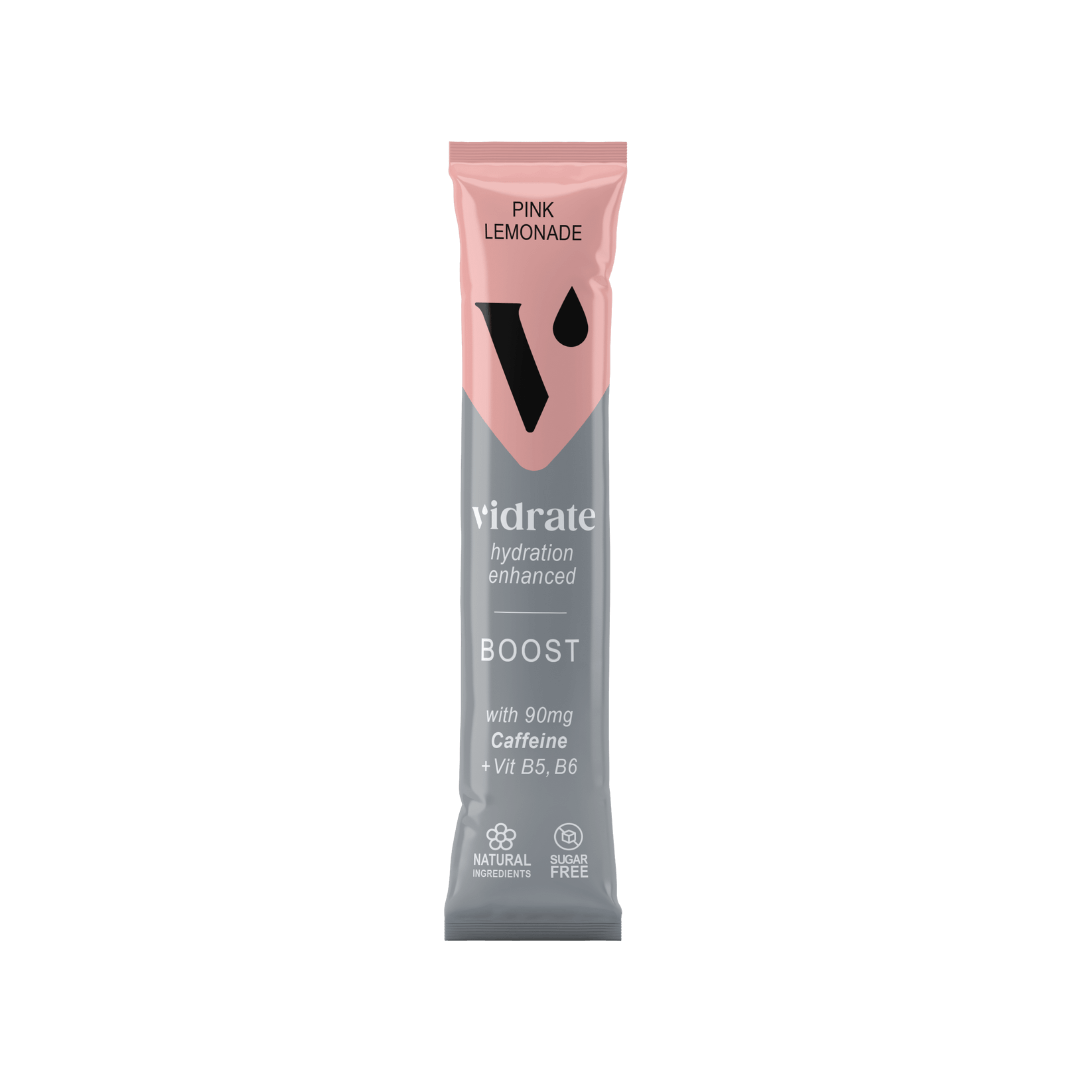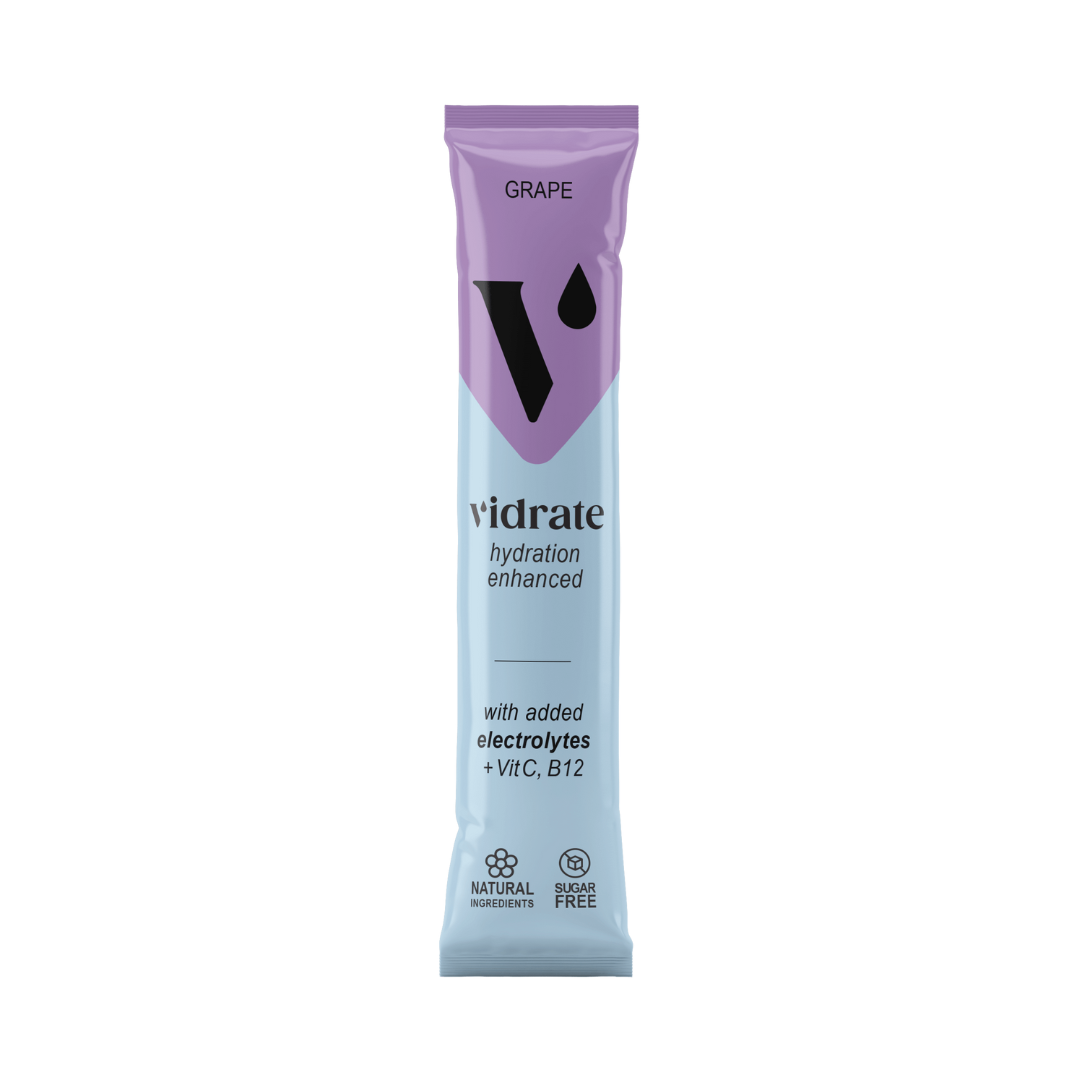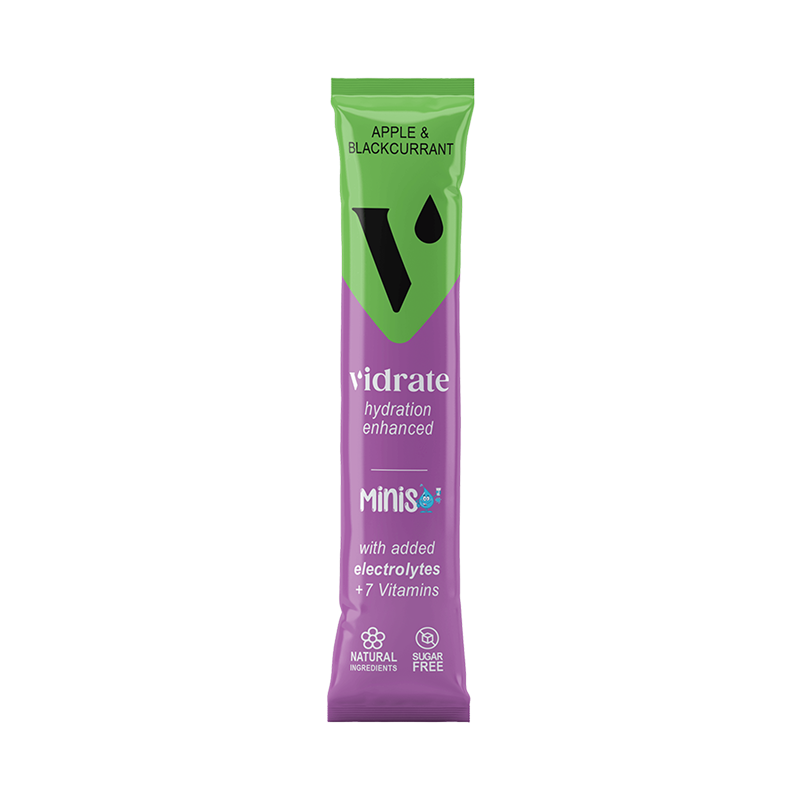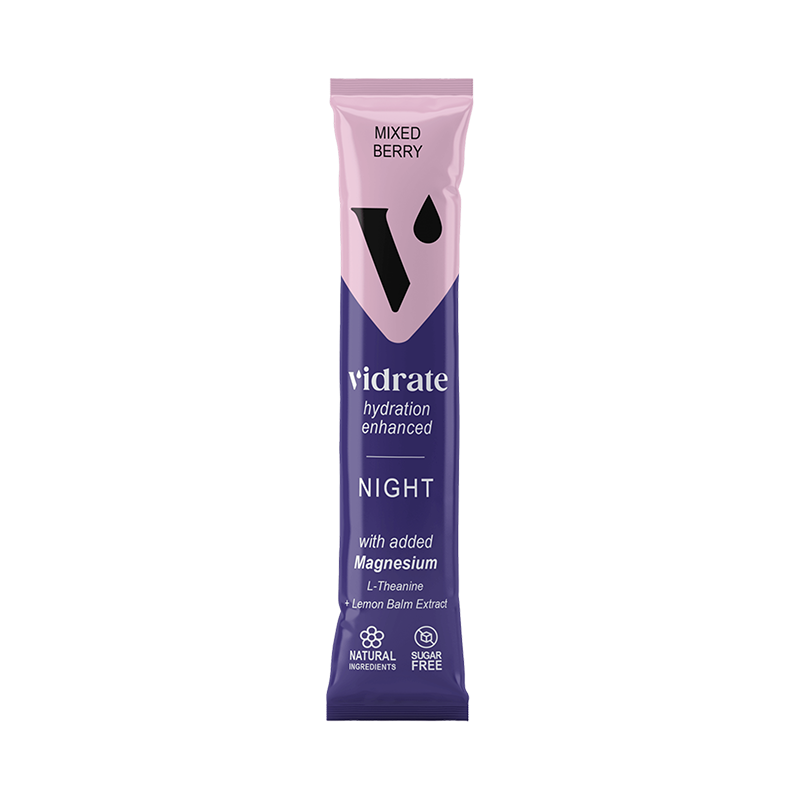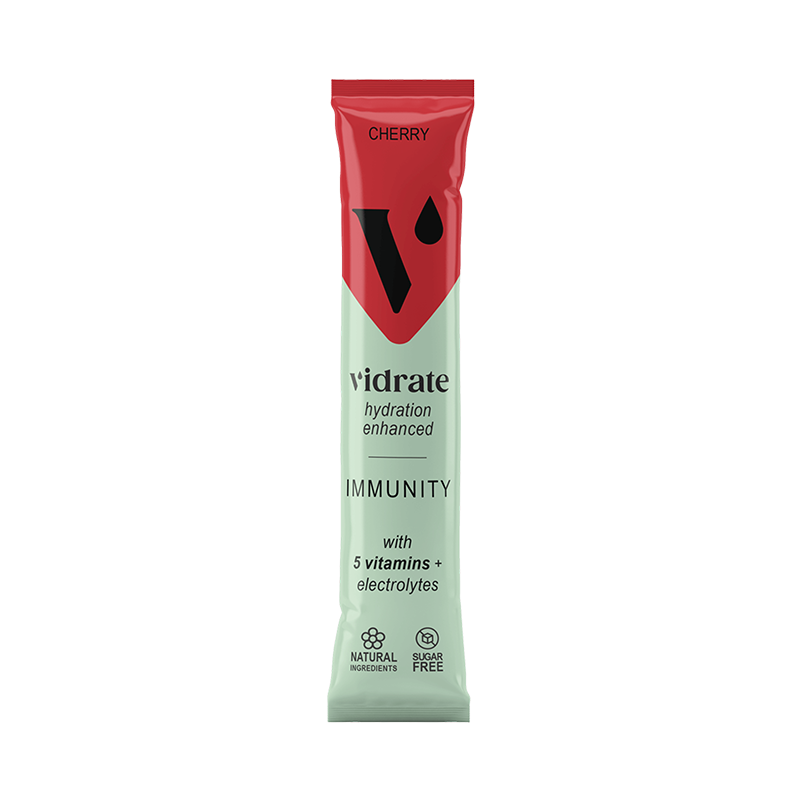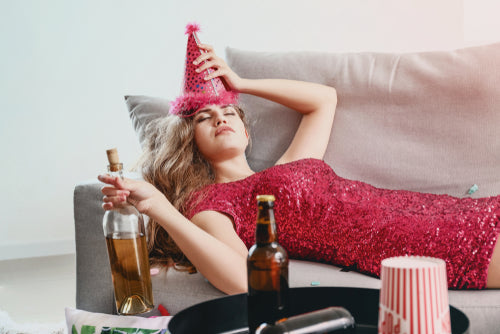

By Conor Evans
Hangover Cures: Re-Energising After the Night Before
Combat hangovers with electrolyte powders
ViDrate electrolyte powders are perfect for those seeking enhanced hydration. Specifically formulated to combat dehydration, electrolyte powders feature natural ingredients, vitamins C and B12, zero sugar and a powerful electrolyte boost. ViDrate electrolyte powders are the perfect way to re-energize - and to stave off hangovers at the pass.
First things first: Why do hangovers happen?

For many of us, hangovers are an inevitable consequence of a boozy brunch or night out on the town. Characterised by headaches, dizziness and drowsiness, hangovers can cause irritability and low moods. Unfortunately, when we drink, alcohol impacts our bodies in a number of negative ways.
Alcohol is a diuretic, so it increases urine production, which can cause dehydration. Dehydration is a primary cause of headaches and dizziness: two of the symptoms most commonly associated with hangovers. Intake of alcoholic drinks also impacts electrolyte balance. Sodium, calcium and potassium are all examples of electrolytes. Electrolytes are vital for ensuring optimum body function, and imbalance may result in irritability, headaches and weakness.
Alcohol increases the production of acid in the digestive system and can cause adverse gastrointestinal effects, such as irritation. Excess drinking may also accelerate or decelerate the movement of food through the gastrointestinal tract, causing nausea and diarrhoea.
It’s also thought that drinking alcohol can cause temporary changes in immune system function. Drowsiness, irritability and dizziness, meanwhile, are all exacerbated by low blood sugar, as alcohol limits the production of glucose.
For many, alcohol makes sleep difficult. Although drinking often induces drowsiness initially, it can also cause restless nights. This aggravates hangover symptoms the following day.
What are the most common hangover symptoms?
- Headaches
- Fatigues
- Weakness
- Excess thirst
- Irritability
- Anxiety
- Sweating
- Nausea
- Stomach pain
- Increased sensitivity to light and sound
Is there any way to prevent a hangover?

Unfortunately, there is no fail-safe way to avoid hangovers, but there are some ways to reduce their severity. Before you drink, hydrate, and consider using supplements. Our electrolyte powders, which contain essential minerals such as sodium, magnesium, potassium and calcium, can help you to maintain fluid balance as you indulge in alcohol.
Our electrolyte powders also contain added vitamins. B Vitamins, which are water soluble and easily lost when alcohol is consumed, must be replenished throughout the night.
Make sure to avoid acetaminophen, also known as Tylenol. This can cause liver toxicity when mixed with alcohol, and can irritate the lining of the stomach.
Try to vary alcoholic drinks with other fluids. Soda water and green tea are known to boost alcohol metabolism. They can also reduce liver damage.
What are congeners, and are they to blame?
While drinking, try to avoid alcohol high in congeners. Studies show that alcohol with a high concentration of congeners increases the severity of hangovers. Whiskey, cognac and tequila are all high in congeners. Vodka, gin and other colourless alcohol, meanwhile, contain low levels of congeners. Beer is also low in congeners.
Congeners are byproducts, made when alcohol is distilled or fermented. Research on them is fairly limited, but scientists believe them to be at least partly responsible for causing hangovers. Congeners can include acids, esters, alcohols and ketones. Highly distilled alcohols, which are usually more expensive, contain fewer congeners.
Early research suggests that congeners make a hangover linger for longer, as they compete with ethanol for the body’s attention, as it tries to break both compounds down. Congener can also encourage the body to release stress hormones, which leads to an inflammatory response. Inflammatory responses can cause fatigue, headaches and drowsiness.
How long does a hangover usually last?
According to recent studies, hangovers typically last between 14 and 23 hours. Some more severe hangovers, however, may last for up to 72 hours. The severity of a hangover depends on the amount of alcohol consumed, quality of sleep, the quantity of food eaten, and how dehydrated you are. Existing health conditions and certain medications may also affect the severity of a hangover, as may certain medications. Getting more severe hangovers as you age is not a myth either - as we age, our body becomes slower at processing toxins.
Hangover heroes - Which electrolytes are best?
Electrolytes such as sodium, magnesium and potassium are well known for being able to remedy headaches, muscle pain and drowsiness. After drinking, replenish electrolytes as soon as possible.
Electrolytes can be consumed in a variety of ways. Spinach, for example, is a fantastic source of calcium and magnesium. If you’re looking for efficiency and convenience, however, electrolyte powders and drinks are best.
Healing from a hangover? Avoid doing these things
- It may be tempting to try the hair of the dog. Our advice? Don’t. Drinking again the morning after a night out may temporarily postpone a hangover, but can make it more severe in the long run. Aim to avoid alcohol for at least 48 hours following heavy drinking.
- Try to avoid drinking caffeine immediately after waking up - focus on other fluids first. Again, caffeine may temporarily stave off some of the effects of a hangover, including headaches and drowsiness. Caffeine has a diuretic effect, however, and may result in further fluid loss.
- Ordering a takeaway may be appealing, but greasy food can further irritate your stomach and exacerbate nausea. It can also increase drowsiness.
- Speaking of food, avoid skipping meals. If you feel nauseous, stick to bland foods. If you can, eat fruits and vegetables, as they are a valuable source of electrolytes.
